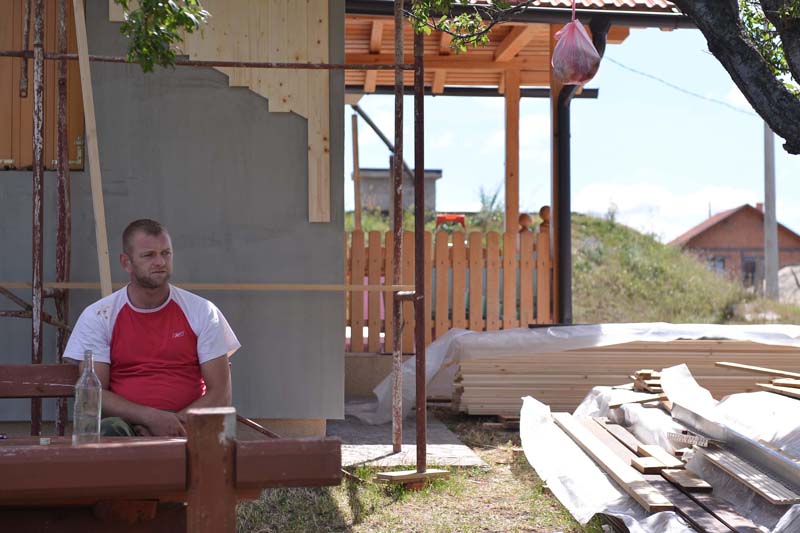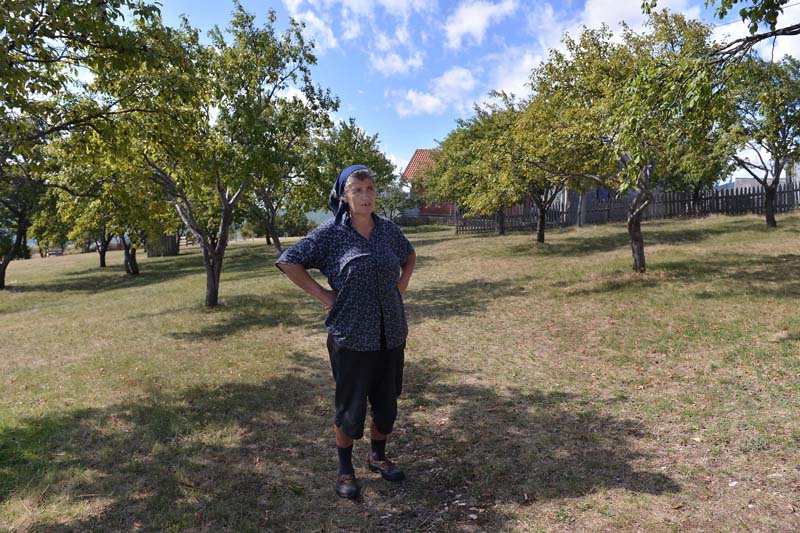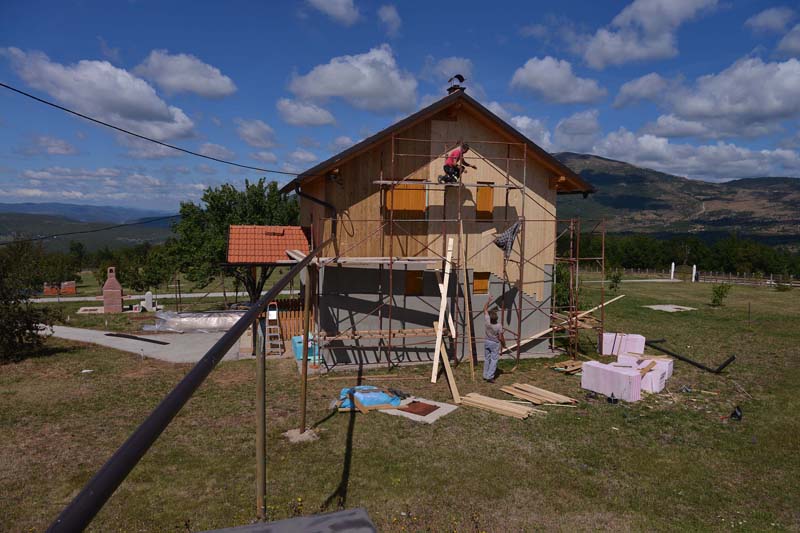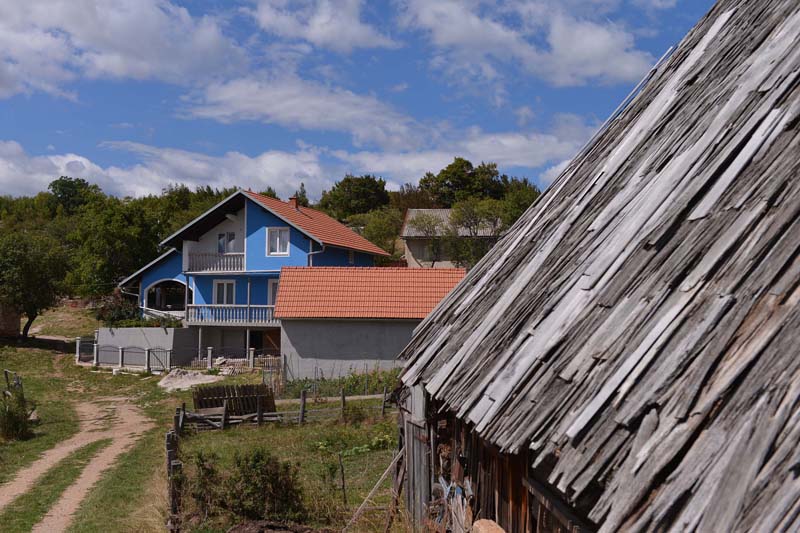The renovation of a house belonging to Nikola Špirić, deputy prime minister of Bosnia and Herzegovina (BiH), at the family estate in the village of Brda near Drvar in ongoing. During the week a neighbor Zdravko Petković and a Banja Luka-based handyman Borislav Vještica work on it.
Petković and Vještica received several thousands KM in grants that Špirić had approved from the budget reserve.
The reserve represents the state budget funds allocated for emergencies and unanticipated events; funds to shoulder the costs of international arbitration or financing new agencies and non-profit organizations. The BiH Council of Ministers approves the liquid reserve while its chairman and his two deputies have discretion to spend 4 percent of the reserve on “immediate assistance” that requires no call for applications and the grantees are not held accountable for the way they’ve spent the funds.
According to an investigation conducted by the Center for Investigative Reporting (CIN) in Sarajevo, nearly 1.8 million KM of immediate assistance money was spent in the past four years. Around half million KM went to 230 individuals, even though the rulebooks give no guidelines on this type of spending. Neighbors and party colleagues also received grants.
Špirić signed off on nearly 410,000 KM for 138 individuals and one third of the amount went to Drvar residents. Two years ago Špirić was the chairman of the BiH Council of Ministers, while he currently holds the post of a deputy chairman and is the BiH Minister of Finances and Treasury. Špirić’s colleagues during the current and previous terms—Vjekoslav Bevanda, Sadik Ahmetović and Zlatko Lagumdžija—mainly gave out money to associations.

Mason Vještica and neighbor Petković
Fifteen-odd villagers lives in a village of Brda, some 20-odd kilometers from Drvar. CIN reporters visited Špirić’s family house in the village two months ago. On that occasion they encountered a handyman Borislav Vještica doing some repairs in the house. He told the reporters that he was a cousin of Špirić’s and that he resided in Banja Luka.
“I do a lot of work for free with some colleagues and neighbors”, said Vještica, acknowledging that some money does change hands from time to time.
Špirić told CIN reporters that the handyman did not work for free and that he paid him “out of (his) pocket”.
According to the paperwork from the BiH Ministry of Finances and Treasury, Vještica received 3,000 KM, and his daughter Nikolina 2,000 KM from this year’s budget reserve. They received money after they’d sent applications to Špirić. The father wrote in his application that his family was in dire financial straits, while his daughter wrote that she needed money to continue her education. Špirić signed off on the money the same day when both applications arrived—June 13, 2013.
Zdravko Petković, a second handyman who takes care of Špirić’s estate in Brda, also received money from the budget reserve. Špirić approved 1,500 KM for a health-care treatment in 2011, and a year earlier he approved 2,000 KM for Petković’s purchase of livestock even though the handyman has a flock of 150 sheep.
According to the CIN investigation, Petković is using a baler paid with the budget reserve money, even though this machine was intended to assist the villagers of Bunčevac, Gilijakovići, Gornje Prekaje and Brda, according to a paperwork.
In 2010, Špirić approved almost 20,000 KM for the baler and an irrigation sprinkler to assist the returnees. However, during their visit to the village of Brda, the reporters saw that Petković was the one operating the baler.
He told the reporters that the residents of Brda readily give one another a hand. “Fifteen to twenty of us would gather when needed and say ‘shall we do it or let’s help one another”, said Petković.
He said that the baler was shared amongst them. “Well, several of us who live in the village we use it. There’s no way that we make money from it”.

The residents in the village of Bunčevac do not agree. Anđa Agić told CIN reporters that she did not hear that her village was entitle to use any baler. She said that she paid Petković 0,80 KM per a bale when he worked on her field. Agić said that she had 200 KM and Petković baled her hay until the money run out. The remainder she had to rake up.
Her neighbor Miladinka Ratković said that she did not know that baling was free of charge “because no one told them not to pay”.
The minister Špirić told the reporters that Petković charged for the services of baling, but he said that the baler required oil and a tractor to haul it. “Well, am I supposed to tell them to charge or not to charge? If there’s an application, and we have approved the application, I’m only interested whether there are abuses—are people complaining?”.
14,000 KM for the Radanovićs
The Radanović family also lives in Brda. They received at least 14,000 KM from the budget reserve—Nikola Radanović and his son Goran got money to renovate their house, buy livestock, a snowplow and a water tank truck. The Radanovićs house is the biggest in Brda and Goran with his family and his parents lives in it.
During their visit, the reporters came across Goran at a neighbor’s work site. He took them to his family house, but he refused to talk on the record. He works as a police officer in Drvar.
His father Nikola was not at home during the reporters’ visit. He had taken sheep to graze.
Špirić sees no harm in giving money to individuals. However, the state auditors said in their 2011 Report on the Audit of the Budget of the BiH institutions that individuals were not entitled to these funds. Auditor Miro Galić said that the issues regarding the spending of the budget reserve were repeated year in year out because there was no clear criteria on the allocation of money: “Simply, there are no rules to the game. When there are no rules to the game, you don’t have criteria”, said Galić.

Budget reserve is defined with by the Law on Financing of BiH Institutions. The discretionary right to spending immediate assistance funds was passed in 2007. The chairman and his two vice-chairmen can sign off on the immediate assistance funds based on the requests and their own judgment. There are no calls for applications or public notices based on which the citizens could find out that there was a possibility to apply for these funds.
Špirić said that the citizens knew that they could apply for these funds because a notice gets published in the government newspaper open for everyone to read. The Official Gazette does publish a Decision to Allocate Funds, but offers no explanation why someone got money and what one needs to do to be eligible.
Špirić told CIN reporters that there were situations when he would offer money from the budget reserve even before he’d received an application. For example, the Institute for Physical Medicine and Rehabilitation Dr. Miroslav Zotović where his hip fracture was treated after a traffic accident in front of a Drvar hotel last year.
He said that after his treatment at the Institute he asked: “Guys, can I help this institution in some way?”
He offered to buy them a machine for joints therapy even though he had no idea how much it might cost. He asked them for an invoice. “And God willing, everyone who goes there should help this institution. I did it with a reason because I saw how people were suffering”, said the minister who had approved 10,483 KM for the purchase of the machine from the state budget’s reserve.
According to the records the Institute shared with CIN, it received money based on the invoice it had sent to Špirić. The public procurement of a machine Kinetek used in the rehabilitation of knee has been ongoing.
Špirić also approved 3,500 KM to the Institute for a convention of the RS Orthopedists and Traumatologists.
Špirić signed off on 3,000 KM for the Institute’s nurse Smilja Marinković, “because of (her) dire financial situation”. He said that Marinković was not the nurse who took care of him, but she was the chief nurse at the Orthopedic Department at the Institute, and he gave her the money because she was a refugee from Drvar.

Money to party colleagues
Špirić does not doubt his decisions. He said that he would help everyone who needed it, but that the funds at his disposal were finite.
However, he did not respond to a request of a 42-year old Sarajevo resident Adnan Fazlagić who needs around 170,000 KM for a heart operation. Fazlagić sent requests to Špirić and Zlatko Lagumdžija, the second vice-president to the chairman of the Council of Ministers.
Fazlagić works at the Federation of BiH (FBiH) Public Broadcaster and needs a heart transplant operation that is performed in Ljubljana. Vjekoslav Bevanda stepped up to the plate and approved 500 KM from this year’s budget reserve.
“Knowing how much the majority of pensioners receives, I have no right to be much dissatisfied”, Fazlagić told CIN reporters.
The budget reserve changes from year to year and the immediate assistance funds are never the same. For example, this year the chairman of the BiH Council of Ministers Vjekoslav Bevanda and his deputies Špirić and Lagumdžija have a discretion to spent slightly more than 342,000 KM from the budget reserve—a third of the money each.
An employee at the office of the chairmen Amela Mulavdić said that Bevanda would approve funds from the reserve for the individuals “when he judges that they are really needed and when they are indeed urgent”.
Seven people have met Bevanda’s criteria in less than two years. Among them was Tonka Krešić who works for Bevanda and who received 2,500 KM as an assistance for her post-graduate studies.
During his term, a vice prime-minister Zlatko Lagumdžija signed off on 42,500 KM from the budget reserves, mainly for the medical treatment and education of sixty people. Among them is Mevla Đuhera from Zavidovići who received 500 KM for medical treatment. Đuhera is a member of the Social-democratic party of BiH (SDP) whose president is Lagumdžija. “I am, as well as my son”, said Đuhera. She added that her brothers and their wives are also in the party. “All of us are”, said Đuhera.
Lagumdžija approved 1,000 KM for Samir Hondo so he could pay his defense representing him before a Belgrade court. He is accused of war crimes committed in a prison camp of Čelebići in Konjic. Lagumdžija also gave Hondo’s daughter Nejla 2,000 KM to support her family.
A former vice-president of the BiH Council of Ministers Sadik Ahmetović—a member of the Party of Democratic Action (SDA)—gave money from the budget reserves to his party colleagues Ljiljana Sakić and Mirsad Kebo.

Sakić, an MP with the FBiH Parliament, received 1,000 KM to print her book. She said that she did not get the money because of the party connections, but because of the book’s subject—the international terrorism. She told CIN that she wrote in 2010 to the Ministry of Security headed by Ahmetović then. It was at the time when she was employed at the Ministry of Internal Affairs of Sarajevo Canton as an advisor to the minister.
“It was a coincidence that the minister was from the party that I belonged to. I might come across him once a month or not at all. I am on good terms with everyone, but I don’t drink coffee with no one in private, so he could have refused as well”, said Sakić.
Ahmetović approved 10,000 KM for medical costs of the FBiH vice-president in 2011. “I know when talking about Mirsad Kebo that this is a person who has no savings and that he is one of the rare politicians who get by just from their salary”, said Ahmetović.
Kebo told CIN reporters that his medical treatment justified the use of budget money because it was urgent. He said that he overcame one cancer but got another one. “My salary is the same as everyone else’s and could not pay such an expensive operation. I’m not affluent, I live an ordinary life”, said Kebo. He said his salary was 3,249.47 KM.







